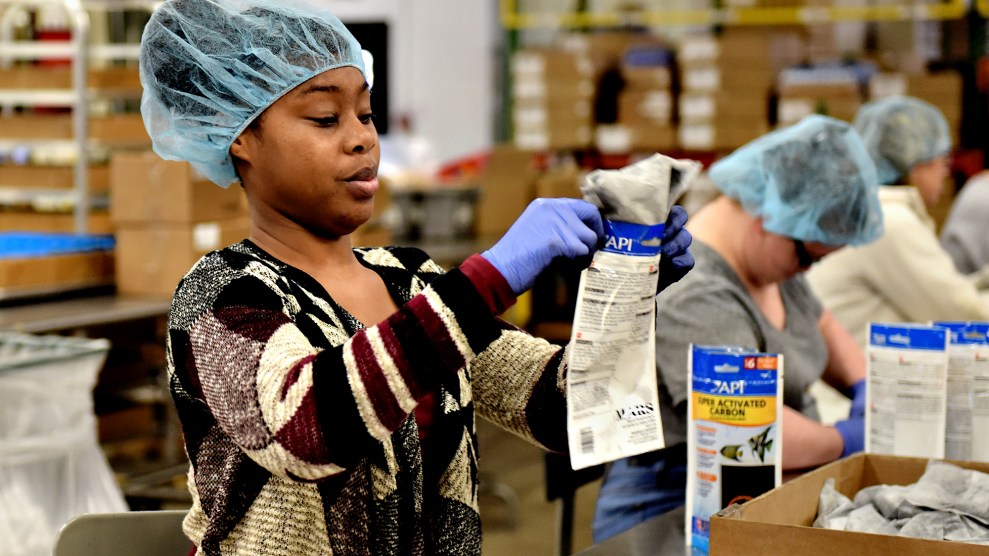Democratic presidential hopefuls, naturally enough, seized on a comment by President Bush’s chief economic adviser that outsourcing “is just a new way of doing international trade” to hammer the White House as callous toward American workers.
You can’t blame them. It was a gift. “More things are tradable than were tradable in the past and that’s a good thing,” said the adviser, N. Gregory Mankiw. Clearly nobody had told him that the coming election is shaping up to be about jobs, jobs, jobs, and that the kinds of Americans who are losing their jobs to, say, Indians in India are no longer the factory workers Ross Perot had in mind when he quipped about the “giant sucking sound” in ’92; today they’re middle-class and white-collar — the kinds of Americans who vote.
Bush may have a rough time working the “good thing” angle to people whose jobs are now considered among the “things” now being traded, but he’s trying hard to qualify it in stump speeches in swing states like Missouri and Pennsylvania this week.
Liberal blogger Brad DeLong highlights the perception this administration labors under:
…it is certainly true that the Bush administration is much more concerned with the problems of CEOs suffering under SEC overreach than it is with the problems of regular people who have lost their jobs.
Democratic rivals for the White House are hoping to capitalize on this anger. The Washington Post quotes John Kerry as saying:
“They’ve delivered a double blow to America’s workers, 3 million jobs destroyed on their watch, and now they want to export more of our jobs overseas. What in the world are they thinking?”
(What Kerry was no doubt thinking as he said those words was thank you, Greg Mankiw, thank you!)
The New York Times quotes Senator Minority Leader Tom Daschle of South Dakota:
“There is absolutely no justification for arguing that we could support jobs going overseas, especially under these circumstances.”
Democrats Daschle and Senator Edward Kennedy of Massachusetts on Thursday proposed a bill requiring companies moving their workforces to detail the reasons and the number of jobs involved.
Even Republicans, who often cry “class warfare” over talk to redistribute wealth to help American workers are crowing against Mankiw. House Speaker Dennis Hastert disagreed that moving jobs overseas is positive for the economy:
“I understand that Mr. Mankiw is a brilliant economic theorist, but his theory fails a basic test of real economics.”
(All you need to do is substitute “politics” for “real economics” for that sentence to make sense.)
Rep. Donald Manzullo of Illinois and North Carolina Rep. Walter Jones were among Republicans demanding that Mankiw resign. The Washington Post quotes him thus:
“I know the president cannot believe what this man has said. He ought to walk away, and return to his ivy-covered office at Harvard.”
However, some conservatives are defending Bush’s vision of long-term economic health.
The Wall Street Journal called the report’s vision “mainstream” and gathered Democratic economists to agree. But that, of course, is beside the point, as conservative blogger Daniel Drezner notes:
“As I’ve argued ad nauseum, Mankiw’s correct on the economics. Alas, on the politics, it looks like he’s stepped on a land mine.”
Blogger and journalist Virginia Postrel agrees with Mankiw’s view that outsourcing would in the long-run benefit Americans in the aggregate:
“More important than the election-year political bias is the subtle but extremely important difference between supporting “shift of jobs overseas” and supporting trade and specialization–the processes on which economic growth depends. Expanding the international division of labor doesn’t shift “jobs” overseas. It shifts “some jobs” overseas, while creating new ones at home. The transition can be extremely painful for the workers affected, but the process itself is valuable. That’s why government policies should address the specific problems of specific people, not attack the process as a whole.”
You can argue against that view from an economic standpoint, of course, and some do. But the chances of any such debate this year are virtually nil.












